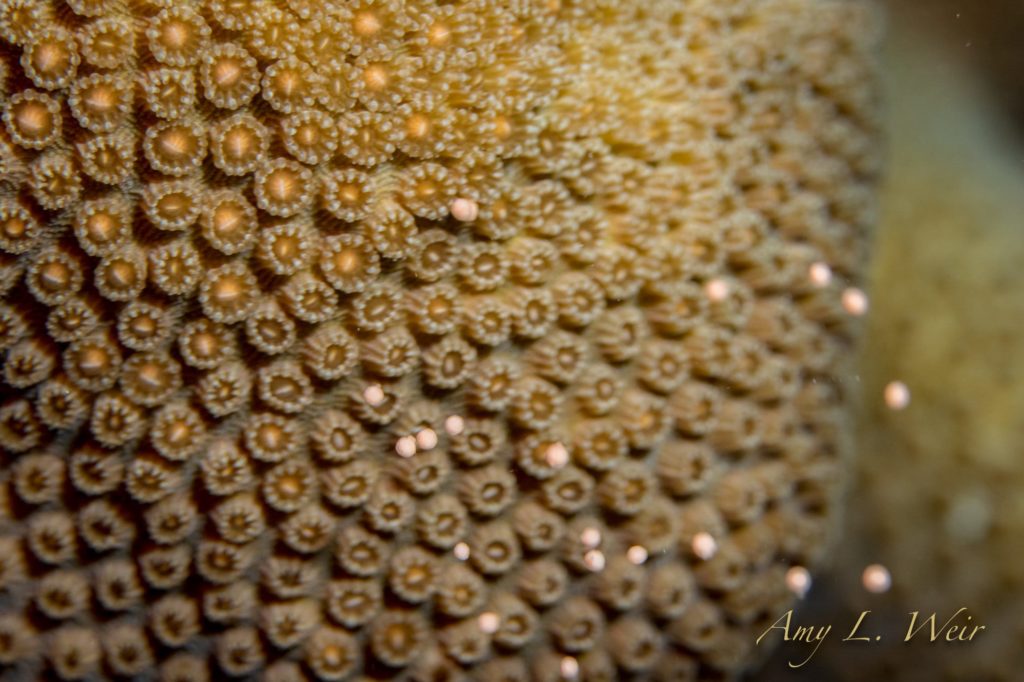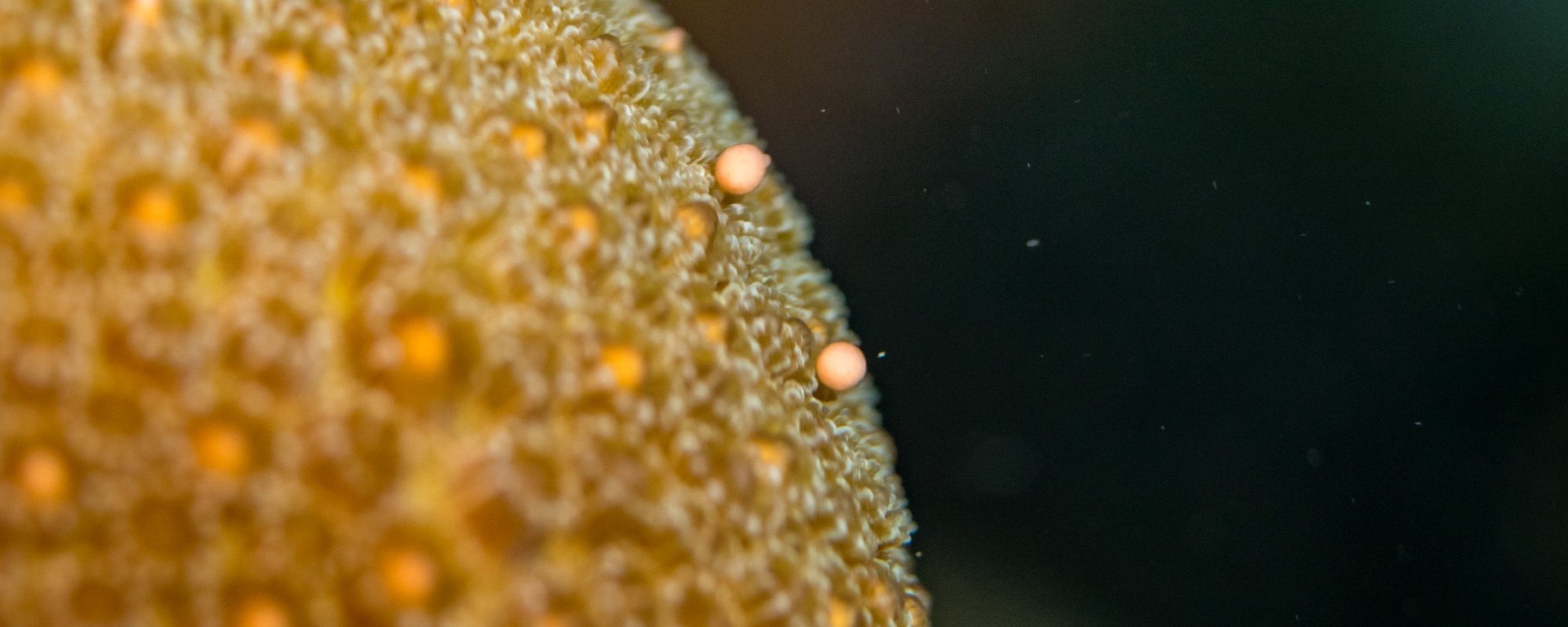Coral Spawning & Divers: What’s the impact?
The final coral spawning event of 2019 came to a close last month here on Bonaire. It’s a spectacular sight and many shops put people in the water to witness this natural phenomenon. Given how the spawning process works an interesting question came up:
Do divers in the water negatively impact the spawning process?
What is coral spawning?
Corals are stationary which makes reproduction tricky since they can’t go out on the town to find a mate. They have to reproduce in place and they do this by spawning. Just once a year, on the very same night at the very same time, corals in a given location release their eggs and sperm into the water column. These packets, called gametes, are only viable for a short time making the synchronization of the release critical for success.

Once released the eggs and sperm meet on the surface. A fertilized egg is called a planula and it will drift along for days, sometimes even weeks, before settling on the bottom. If it settles in a habitable spot, a new colony is born!
Coral spawning is one of nature’s great phenomenas. One that scientists don’t fully understand. For the corals in an area to release at the very same time on the very same night is nothing short of amazing. It’s not like they can talk to each other to agree on a date and time when everyone will be ready to do their thing. It just happens and it’s incredible. The lunar cycle, water temperature, salinity, and tides are all thought to play a role in giving the corals their cues to spawn.
Given how fascinating this process is, it’s no wonder divers are champing at the bit to experience it first hand. But should they?
Do divers interrupt the spawning process?
So now that we know what spawning is, back to our question: with all of the reproductive material in the water, do divers negatively impact the spawning making it harder for the sperm and egg to connect?
I brought this question to some friends who are coral experts working the coral restoration field. They study the yearly spawning process very closely, some even gather gametes to study in the lab.
They didn’t know the answer either. It turns out this hasn’t been studied. Or at least no where that we could find. But they all came to the same conclusion; when it comes to nature and natural processes, it’s generally better if we humans aren’t present. When it comes to diving during spawning specifically, you can see how divers kicking, moving their arms, and exhaling bubbles through open-circuit scuba could impact the trajectory of the reproductive material.
One could also argue that the amount of reef with divers on it hoping to witness this spectacular event versus the reef as a whole results in a small percentage and therefore has little impact.
More data needs to be collected to come to a definitive answer on this. They all agreed on one thing though: having scientists and coral experts in the water is worth the risk to the spawning process to propel the field forward. Amazing advances are happening in the field of coral restoration right now and with the rapid decline of reefs around the world this is truly a race against time so they need to be in the water.
As for this rest of us? We might consider sitting it out next year.
What do you think?
